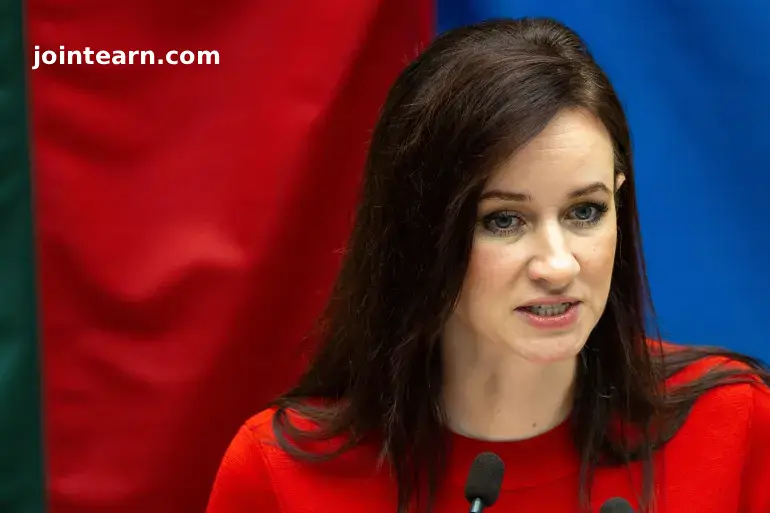
Lithuania Takes Firm Stand Against Airspace Breaches
Lithuania’s Prime Minister Inga Ruginiene has announced that the government will shoot down smuggler balloons entering its airspace from Belarus and move to close border crossings with its eastern neighbour. The decision follows a string of airspace incursions that have disrupted civil aviation and intensified tensions along the European Union’s eastern frontier.
Speaking at a press conference on Monday, Ruginiene stated bluntly, “Today we have decided to take the strictest measures — there is no other way.”
She added that border crossings will be closed except for European Union citizens returning from Belarus and for diplomatic travel, signalling a near-complete suspension of cross-border movement.
The Lithuanian government said the move is a response to repeated airspace violations caused by balloons allegedly used for cigarette smuggling. Officials argue that the incidents are not mere criminal activity but part of a larger pattern of hybrid threats emanating from Belarus and, indirectly, Russia.
Air Traffic Disruptions Raise Alarm Across Europe
In recent weeks, Vilnius Airport — Lithuania’s main international gateway — was forced to close four times after unidentified balloons entered Lithuanian airspace. Each closure prompted temporary shutdowns of border crossings with Belarus, as officials scrambled to assess potential security threats.
Prime Minister Ruginiene described these incursions as “hybrid attacks”, suggesting a deliberate attempt to test Lithuania’s security systems and disrupt European air travel. “These are not coincidences,” she emphasized. “They are coordinated provocations designed to undermine public safety and EU stability.”
The Lithuanian Cabinet is scheduled to convene on Wednesday to decide whether to extend the closure of the Belarus border and possibly invoke NATO Article 4, which allows member states to request consultations when their territorial integrity or political independence is threatened.
NATO Article 4: A Sign of Rising Regional Tension
If Lithuania invokes Article 4 of the NATO Treaty, it would be a rare diplomatic move signaling deep concern over escalating hybrid operations from neighboring states.
Under Article 4, NATO members must consult together whenever any of them feels threatened — a step that could trigger further defensive coordination among Baltic and Eastern European nations.
Foreign Minister Kestutis Budrys underscored the seriousness of the situation, warning that the incidents were “calculated provocations designed to destabilize, distract, and test NATO’s resolve.”
Budrys added that Lithuania is working closely with NATO air policing missions and neighboring Latvia and Poland to strengthen border surveillance and interception capabilities. “We must treat each of these violations as part of a broader strategy, not isolated events,” he wrote on social platform X.
Smuggler Balloons: From Contraband to Coercion
Lithuanian authorities allege that the balloons are part of a long-running smuggling network trafficking contraband cigarettes from Belarus into the European Union.
However, officials believe that these operations may now serve dual purposes — economic and political — given the broader geopolitical context involving Belarusian President Alexander Lukashenko and his alliance with Russian President Vladimir Putin.
“The pattern is clear,” one senior Lithuanian security source said. “What began as cigarette smuggling has evolved into a hybrid tactic — low-cost, deniable, and disruptive.”
The Lithuanian government has accused Lukashenko’s regime of allowing, if not encouraging, these activities as a form of hybrid aggression against the European Union. Such tactics, combining criminal networks with state-backed destabilization, are seen as part of a larger toolkit of asymmetric warfare used by authoritarian regimes to pressure Western democracies.
Belarus Opposition and International Response
Exiled Belarusian opposition leader Sviatlana Tsikhanouskaya, who resides in Lithuania, condemned the balloon incursions as a deliberate act of state aggression.
In a written statement to the Associated Press, she described the incidents as “yet another sign that the Lukashenko regime is using cigarette smuggling as a weapon — a tool of hybrid aggression against Europe.”
While there has been no official comment from Minsk, Western analysts say Belarus’s continued tolerance of such activities reinforces its image as a proxy player in the Kremlin’s broader confrontation with NATO.
Russian Airspace Violations Add to the Pressure
Compounding the tension, Lithuania reported that two Russian military aircraft violated its airspace for about 18 seconds on Thursday, prompting a formal diplomatic protest and a NATO response.
Moscow denied the incident, calling it a “navigational error,” but Vilnius officials dismissed the explanation as implausible given the frequency of such incursions across the Baltic region.
In the past month, European airspace has seen a spike in suspicious activity, including drone sightings near major airports in Copenhagen, Munich, and other Baltic capitals. Analysts warn that these incidents collectively demonstrate the growing sophistication of hybrid warfare tactics targeting European infrastructure.
Economic and Political Fallout
Lithuania’s decision to close border crossings with Belarus will likely impact regional trade and cross-border communities, especially those dependent on small-scale commerce.
However, officials argue that national security outweighs short-term economic costs, stressing the need to “send a clear message” to Minsk and Moscow that Europe’s borders are not open to manipulation.
Prime Minister Ruginiene reiterated Lithuania’s commitment to EU and NATO solidarity, emphasizing that “defending our sovereignty means defending the safety of every European citizen.”
The Bigger Picture: A Test of Europe’s Resolve
Lithuania’s firm stance underscores how hybrid threats — blending smuggling, propaganda, and minor airspace violations — are increasingly used to probe the West’s defensive posture without triggering direct military confrontation.
Analysts say the crisis may push the European Union to accelerate the creation of a “drone and balloon defense wall” along its eastern borders, combining radar systems, AI-based tracking, and joint NATO air policing.
For now, Lithuania’s air defense units remain on high alert, tasked with intercepting any unidentified aerial objects from Belarus.
As Ruginiene put it, “We are a frontline state — and we will act as one.”


Leave a Reply